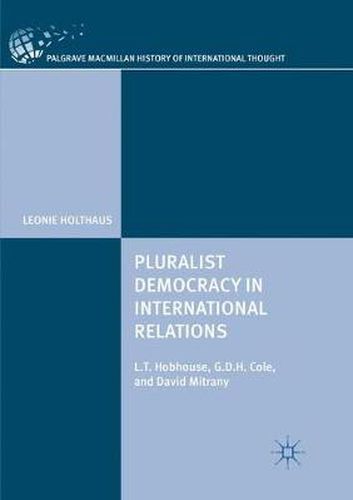Readings Newsletter
Become a Readings Member to make your shopping experience even easier.
Sign in or sign up for free!
You’re not far away from qualifying for FREE standard shipping within Australia
You’ve qualified for FREE standard shipping within Australia
The cart is loading…






This book demonstrates the importance of democracy for understanding modern international relations and recovers the pluralist tradition of L.T. Hobhouse, G.D.H. Cole, and David Mitrany. It shows that pluralism’s typical interest in civil society, trade unionism, and transnationalism evolved as part of a wide-ranging democratic critique that representative democracies are hardly self-sustaining and are ill-equipped to represent all entitled social and political interests in international relations. Pluralist democratic peace theory advocates transnational loyalties to check nationalist sentiments and demands the functional representation of social and economic interests in international organizations. On the basis of the pluralist tradition, the book shows that theories about domestic democracy and international organizations co-evolved before scientific liberal democratic peace theory introduced new inside/outside distinctions.
$9.00 standard shipping within Australia
FREE standard shipping within Australia for orders over $100.00
Express & International shipping calculated at checkout
This book demonstrates the importance of democracy for understanding modern international relations and recovers the pluralist tradition of L.T. Hobhouse, G.D.H. Cole, and David Mitrany. It shows that pluralism’s typical interest in civil society, trade unionism, and transnationalism evolved as part of a wide-ranging democratic critique that representative democracies are hardly self-sustaining and are ill-equipped to represent all entitled social and political interests in international relations. Pluralist democratic peace theory advocates transnational loyalties to check nationalist sentiments and demands the functional representation of social and economic interests in international organizations. On the basis of the pluralist tradition, the book shows that theories about domestic democracy and international organizations co-evolved before scientific liberal democratic peace theory introduced new inside/outside distinctions.